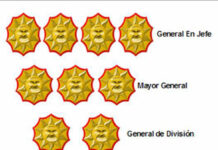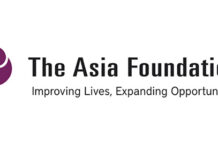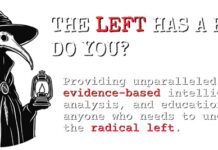Over the past half-century, I have been engaged in research, lectured and worked with social movements and leftist governments in Latin America. I interviewed US officials and think tanks in Washington and New York. I have written scores of books, hundreds of professional articles and presented numerous papers at professional meetings.
In the course, of my activity I have discovered that many academics are frequently engaged in what government officials dub ‘de-briefing’! Academics meet and discuss their field-work, data collection, research findings, observations and personal contacts over lunch at the Embassy with US government officials or in Washington with State Department officials.
US government officials look forward to these ‘debriefings”; academics provide useful access to information which they otherwise could not obtain from paid, intelligence agents or local collaborators.
Not all academic informants are very well placed or competent investigators. However, many provide useful insights and information especially on leftist movements, parties and leaders who are real or potential anti-imperialist adversaries.
US empire builders whether engaged in political or military activities depend on information especially regarding who to back and who to subvert; who should receive diplomatic support and who to receive financial and to military resources.
De-briefed academics identify ‘moderate’ and ‘radical’ adversaries, as well as personal and political vulnerabilities. Officials frequently exploit health problems or family needs to ‘turn’ leftists into imperial stool pigeons.
US officials are especially interested in academic gate-keepers who exclude ‘anti-imperialist’ critics, activists , politicians and government officials.
At times, US State Department officials claim to be sympathetic ‘progressives’ who oppose ‘Neanderthals’ in their institution, in order to elicit inside information from leftist academic informants.
Debriefing is a widespread practice and involves numerous academics from major universities and research centers, as well as non-governmental ‘activists’ and editors of academic journals and publications.
Academics who participate in debriefings frequently do not publicize their reporting to the government. Most likely they share their reports with other academic informers. All claim they are merely sharing research and diffusing information for ‘science’ and to further ‘humane values’.
Academic informers always justify their collaboration as providing a clear and more balanced picture to ‘our’ policymakers, ignoring the predictable destructive outcomes likely to ensue.
Academics in the Service of Empire
Academic informants never study, collect research and publicize reports on US covert, overt and clandestine policies in defense of multi-nationals and Latin American elite which collaborate with empire builders.
US officials have no interest in ‘debriefing’ academics conducting anti-imperialist research.
US officials are keen to know any and all reports on ‘movements from below’: who they are, how much influence they have, their susceptibility to bribes, blackmail and invitations to the State Department, Disneyland, or the Wilson Center in D.C.
US officials fund academic research on militant trade unions, agrarian social movements, feminist and ethnic minorities engaged in class struggle, and anti-imperialist activists and leaders, as they all serve as targets for imperial repression.
The officials are also keen on academic reports on so-called ‘moderate’ collaborators who can be funded, advised and recruited to defend the empire, undermine the class struggle and split movements.
Academic informants are especially useful in providing personal and political information on Latin American leftwing intellectuals, academics, journalists, writers and critics which allows US officials to isolate, slander and boycott anti-imperialists, as well as those intellectuals who can be recruited and seduced with foundation grants and invitations to the Kennedy Center at Harvard.
When US officials have a difficult time understanding the intricacies and consequences of ideological debates and factional divisions within leftist parties or regimes, ex-leftist academic informers, who collect documents and interviews, provide detailed explanations and provide officials with a political roadmap to exploit and exacerbate divisions and to guide repressive policies, which undermine adversaries engaged in anti-imperialist and class struggle.
The State Department works hand and glove with research centers and foundations in promoting journals which eschew all mention of imperialism and ruling class exploitation; they promote ‘special issues’ on ‘class-less’ identity politics, post-modern theorizing and ethnic-racial conflicts and conciliation. In a study of the two leading political science and sociological journals over a period of fifty years they published less than .01% on class struggle and US imperialism.
Academic informants have never reported on US government links to narco-political rulers. Further, academic informants do not research widespread long term Israeli collaboration with death squads in Colombia, Guatemala, Argentina and El Salvador, in cases because of their loyalties to Tel Aviv and in most cases because the State Department is not interested in debriefings which expose their allies and their joint complicity.
Academic Informants: What do they want and what do they get?
Academic informers engage in debriefing for various reasons. A few do so simply because they share the politics and ideology of the empire builders and feel it is their ‘duty’ to serve.
The great majority are established academics with ties to research centers who inform because it fattens their CV–which helps secure grants, prestigious appointments and awards.
Progressive academics who collaborates have a Janus face approach; they speak at Leftist public conferences, especially to students and in private they report to the State Department.
Many academics believe they can influence and change government policy. They seek to impress self-identified ‘progressive’ officials with their inside knowledge on how to ‘turn’ Latin critics into moderate collaborators. They invent innocuous academic categories and concepts to attract graduate students to further collaboration with imperial colleagues.
The Consequence of Academic Debriefing
Former leftist academic informers are frequently cited by the mass media as a reliable and knowledgeable ‘expert’ in order to slander anti-imperialist governments, academics and critics.
Ex-leftist academics pressure rising scholars with a critical perspective to adopt ‘moderate’ reasonable critiques , to denounce and avoid anti-imperialist ‘extremists’ and to disparage them as ‘polemical ideologues’!
Academic informants in Chile helped the US Embassy identify neighborhood militants who were handed over to the secret police (DINA) during the Pinochet dictatorship.
US academic informants in Peru and Brazil provided the Embassy with research projects which identified nationalist military officials and leftist students who were subsequently purged, arrested and tortured.
In Colombia, US academic informers were active in providing reports on rural insurgent movements which led to massive repression. Academic collaborators provided detailed reports to the embassy in Venezuela on the grass roots movements and political divisions among Chavista government and military officials with command of troops.
The State Department financed academics working with NGO who identified and recruited middle class youth as street fighters, drug gangsters and the destitute to engage in violent struggles to overthrow the elected government by paralyzing the economy.
Academic reports on regime ‘violence’ and ‘authoritarianism’ served as propaganda fodder for the State Department to impose economic sanctions , impoverishing people, to foment a coup. US academic collaborators enlisted their Latin colleagues to sign petitions urging rightwing regimes in the region to boycott Venezuela.
When academic informers are confronted with the destructive consequences of imperial advances they argue that it was not their ‘intention’; that it was not their State Department contacts who carried out the regressive policies. The more cynical claim that the government was going to do their dirty work regardless of the debriefing.
What is clear in virtually all known experiences is that academic informers’ ‘de-briefings’ strengthened the empire-builders and complemented the deadly work of the paid professional operatives of the CIA, DEA and the National Security Agency.

CovertAction Magazine is made possible by subscriptions, orders and donations from readers like you.
Blow the Whistle on U.S. Imperialism
Click the whistle and donate
When you donate to CovertAction Magazine, you are supporting investigative journalism. Your contributions go directly to supporting the development, production, editing, and dissemination of the Magazine.
CovertAction Magazine does not receive corporate or government sponsorship. Yet, we hold a steadfast commitment to providing compensation for writers, editorial and technical support. Your support helps facilitate this compensation as well as increase the caliber of this work.
Please make a donation by clicking on the donate logo above and enter the amount and your credit or debit card information.
CovertAction Institute, Inc. (CAI) is a 501(c)(3) non-profit organization and your gift is tax-deductible for federal income purposes. CAI’s tax-exempt ID number is 87-2461683.
We sincerely thank you for your support.
Disclaimer: The contents of this article are the sole responsibility of the author(s). CovertAction Institute, Inc. (CAI), including its Board of Directors (BD), Editorial Board (EB), Advisory Board (AB), staff, volunteers and its projects (including CovertAction Magazine) are not responsible for any inaccurate or incorrect statement in this article. This article also does not necessarily represent the views the BD, the EB, the AB, staff, volunteers, or any members of its projects.
Differing viewpoints: CAM publishes articles with differing viewpoints in an effort to nurture vibrant debate and thoughtful critical analysis. Feel free to comment on the articles in the comment section and/or send your letters to the Editors, which we will publish in the Letters column.
Copyrighted Material: This web site may contain copyrighted material the use of which has not always been specifically authorized by the copyright owner. As a not-for-profit charitable organization incorporated in the State of New York, we are making such material available in an effort to advance the understanding of humanity’s problems and hopefully to help find solutions for those problems. We believe this constitutes a ‘fair use’ of any such copyrighted material as provided for in section 107 of the US Copyright Law. You can read more about ‘fair use’ and US Copyright Law at the Legal Information Institute of Cornell Law School.
Republishing: CovertAction Magazine (CAM) grants permission to cross-post CAM articles on not-for-profit community internet sites as long as the source is acknowledged together with a hyperlink to the original CovertAction Magazine article. Also, kindly let us know at info@CovertActionMagazine.com. For publication of CAM articles in print or other forms including commercial internet sites, contact: info@CovertActionMagazine.com.
By using this site, you agree to these terms above.
About the Author

James Petras is a retired Bartle Professor (Emeritus) of Sociology at Binghamton University in Binghamton, New York and adjunct professor at Saint Mary’s University, Halifax, Nova Scotia, Canada.
Petras is the author of more than 62 books published in 29 languages, and over 600 articles in academic journals, including the American Sociological Review, British Journal of Sociology, Social Research, and Journal of Peasant Studies.
Petras has published over 2000 articles in well-known periodicals such as the New York Times, the Guardian, the Nation, Christian Science Monitor, Foreign Policy, New Left Review, Partisan Review, TempsModerne, Le Monde Diplomatique, and CovertAction Magazine. Petras’ writings cover political issues with particular focus on Latin America and the Middle East, imperialism, globalization, and leftist social movements.










